Introduction
Table of Contents
Many adults struggle with restless nights, tossing and turning while their minds race. A bedtime routine for adults is more than a ritual—it is a science-backed way to restore balance and get deep rest. By following the right steps, you can enjoy improving sleep quality and wake up with renewed energy. This article will guide you through proven strategies, expert insights, and easy habits to help you create the best bedtime habits and discover ways to sleep better naturally.
These simple yet powerful habits regulate your circadian rhythm, lower stress, and encourage deep relaxation. By following consistent steps each evening, you can improve sleep quality and wake up feeling refreshed. Whether it’s journaling, meditation, or preparing a calming sleep environment, the right bedtime routine for adults can change your health, energy, and focus. Let’s explore how to sleep better every night.
Why a Bedtime Routine Matters
A consistent nighttime routine for adults helps regulate the circadian rhythm, which is your body’s internal clock. When you follow a pattern, your brain starts producing melatonin at the right time, making sleep onset faster and easier. This helps you avoid long nights of staring at the ceiling, wondering how to fall asleep faster.
Strong routines also act as natural stress relief before bedtime. They prepare the brain for rest and reduce cortisol, the stress hormone. Think of it like landing a plane—without a calm landing, your body crashes instead of drifting smoothly into restorative sleep. Creating healthy sleep rituals is a simple but powerful way to prepare your mind and body for sleep.
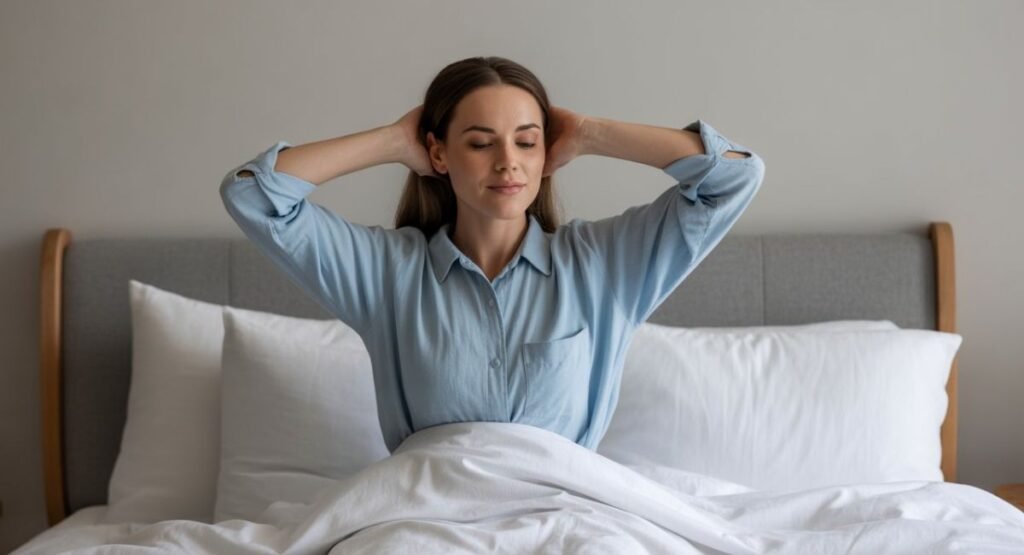
Signs Your Night Routine Needs an Upgrade
If you struggle with insomnia, wake up often during the night, or feel groggy even after eight hours, it may mean your sleep hygiene needs work. Constant scrolling on your phone, late-night snacks, or too much caffeine are hidden culprits that disrupt sleep quality and throw off your sleep schedule.
Some adults also ignore warning signs such as blue light exposure, unbalanced diets, or poor bedroom environments for sleep. If you wake up more tired than before bed, it is a clear signal your nighttime routine for adults is not serving you well. Small upgrades can bring major changes.
The Best Bedtime Routine for Adults
Creating the best bedtime habits means building rituals that tell your body when to relax. A predictable flow creates comfort and helps you wind down before bed. Let’s explore practical steps to build your own healthy sleep rituals.
Set a Consistent Bedtime
A consistent sleep schedule is the foundation of good rest. Going to bed and waking up at the same time trains your circadian rhythm. Over time, your body automatically knows when to feel sleepy, reducing delays in sleep onset.
Put Away Electronics and Blue Light Devices
Exposure to blue light from phones, TVs, or laptops tricks the brain into thinking it is still daytime. This blocks melatonin production and delays rest. Experts recommend turning off devices at least one hour before bed. Try replacing screens with relaxing evening activities.
Eat a Light Snack or Herbal Tea
Heavy meals before sleep cause digestion problems. Instead, try foods that help you sleep, like kiwi, cherries, or almonds. A cup of herbal tea (chamomile, lavender) calms the nervous system and promotes melatonin production, making it easier to drift off.
Take a Warm Bath or Shower
A bath before bedtime can improve sleep quality. When you step out, your body temperature drops, signaling your brain that it is time to rest. Warm water also relaxes muscles and reduces stress built up from the day.
Stretch, Breathe, and Relax
Gentle stretches paired with sleep relaxation exercises calm both body and mind. Practicing progressive muscle relaxation (PMR) or slow breathing lowers heart rate. These simple steps help you transition into sleep naturally, without natural sleep aids or pills.
Try Meditation or Gentle Yoga
An evening meditation practice or light yoga for sleep reduces racing thoughts. Techniques like mindfulness meditation create calm, making falling asleep faster more realistic. These rituals become natural stress relief before bedtime.
Read or Journal Before Bed
There are proven reading before bed benefits. A calming book can replace screens, while nighttime journaling benefits include releasing stress and planning for tomorrow. Keeping a to-do list or a sleep diary also clears mental clutter, allowing you to relax.
Prepare Your Bedroom Environment
Your sleep environment is vital. A cool temperature between 60 and 67°F, dark curtains, and quiet surroundings support deep sleep. Adding white noise / pink noise or ambient sounds can block disturbing noises. High-quality bedding and a cozy mattress are part of strong sleep hygiene.
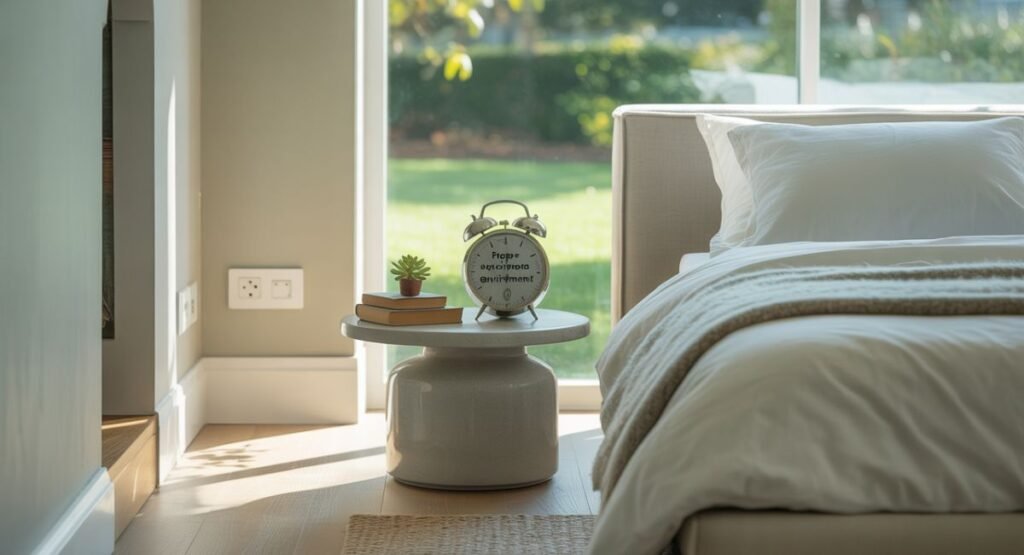
Foods, Drinks, and Habits That Affect Sleep
Not all foods are equal when it comes to rest. Caffeine, alcohol, and sugar are enemies of improving sleep quality. Eating heavy meals late at night delays digestion, keeping your body active instead of relaxed.
On the other hand, foods that help you sleep include bananas, almonds, and cherries. Drinking warm herbal tea (chamomile, lavender) calms the nervous system. Creating a list of supportive versus harmful foods makes it easier to choose wisely.
| Helps Sleep | Hurts Sleep |
| Kiwi, cherries, bananas | Caffeine (coffee, tea, soda) |
| Almonds, walnuts | Alcohol before bed |
| Chamomile or lavender tea | Heavy meals late night |
| Warm milk | Sugary desserts |
Relaxation Techniques That Really Work
To prepare your mind and body for sleep, relaxation is key. Let’s look at science-backed practices proven to ease the mind.
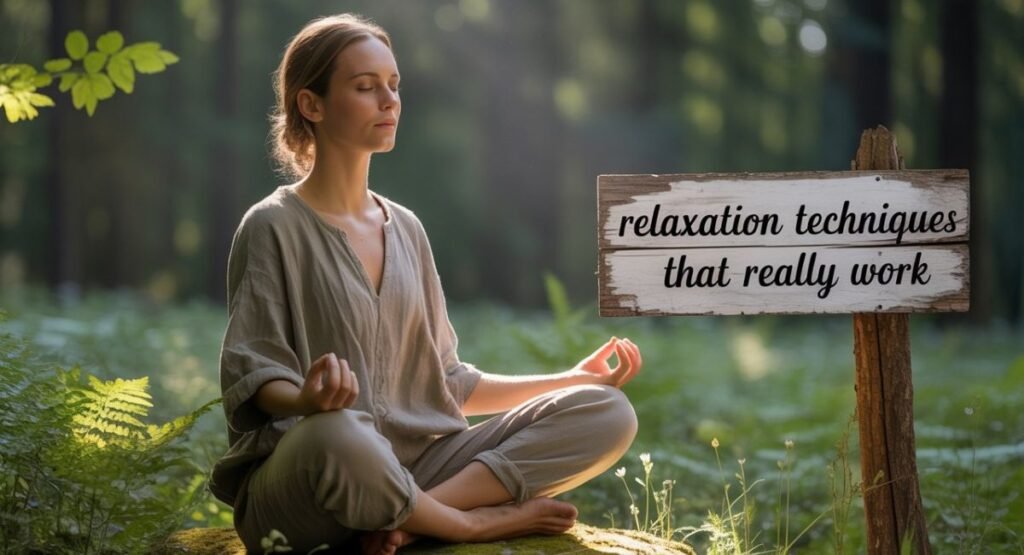
Breathing Exercises for Calmness
Deep breathing lowers heart rate and creates calm. Methods like 4-7-8 breathing or box breathing are powerful sleep relaxation exercises. They act as natural stress relief before bedtime.
Music and Sound Therapy
Listening to white noise / pink noise or ambient sounds masks distractions. Some adults prefer soft music, while others find ocean waves or rain sounds soothing. Research shows sound therapy can improve sleep quality by helping people drift off faster.
Aromatherapy and Essential Oils
Using aromatherapy with lavender, chamomile, or sandalwood relaxes the nervous system. Adding a few drops of oil to a diffuser creates a bedroom environment for sleep that feels calming and inviting.
Visualization or Sleep Affirmations
Guided imagery, where you picture calming scenes, or repeating positive affirmations helps reduce anxiety. These relaxation techniques focus the mind away from stress, improving your chance of falling asleep faster.
The Role of Sleep Hygiene
Practicing good sleep hygiene is about more than just habits. It includes room temperature, bedding, lighting, and a regular sleep schedule. A poor setup creates fragmented rest, while a healthy environment ensures smoother sleep cycles.
| Good Sleep Hygiene | Poor Sleep Hygiene |
| Cool, dark, quiet room | Bright room, noise, clutter |
| Consistent sleep schedule | Random bed and wake times |
| Comfortable mattress, pillows | Old, uncomfortable bedding |
| Relaxing evening activities | Doomscrolling, TV binges |
Creating strong, healthy sleep rituals is about building systems that support your body’s natural rhythms instead of working against them.
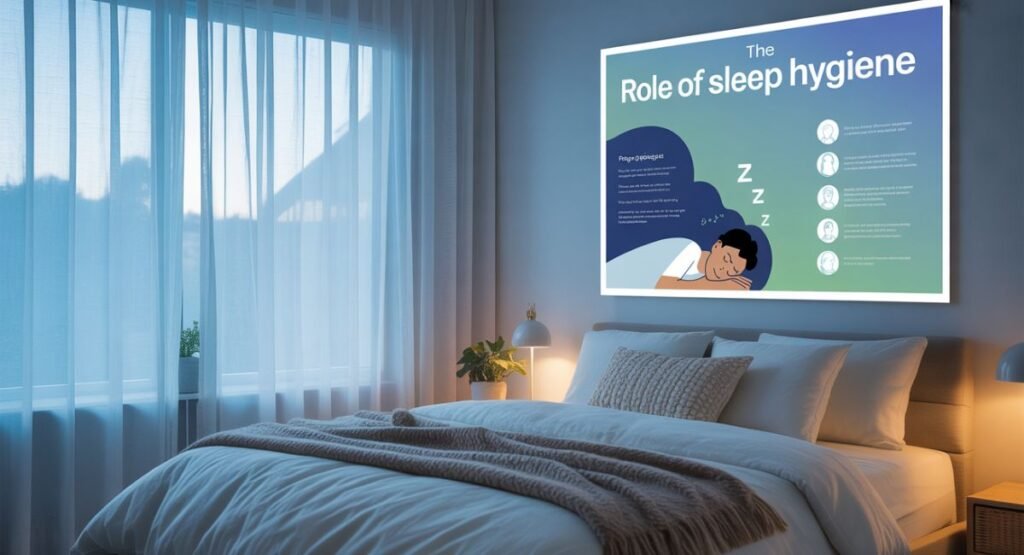
Common Mistakes to Avoid at Night
Many adults make small errors that have a big impact. Doomscrolling on social media or staying up to finish “one more episode” disrupts melatonin production. This is often called “revenge bedtime procrastination.”
Exercising too late in the evening raises body temperature and heart rate, delaying sleep onset. Even irregular sleep times confuse the circadian rhythm. By recognizing these traps, you can build better bedtime routines for adults that truly restore energy.
When to Seek Medical Help
Sometimes natural sleep aids and habits are not enough. Conditions like sleep apnea, chronic insomnia, or restless leg syndrome may require medical help. If you snore heavily, wake up gasping, or feel exhausted daily, it may be time for a professional evaluation.
Doctors may recommend sleep studies, at-home tests, or therapy for persistent problems. Ignoring serious issues risks long-term health complications. If your bedtime routine for adults does not improve things after weeks, reach out for help.
FAQs About Bedtime Routines
What is the best bedtime routine for better sleep?
The best routine includes a consistent sleep schedule, no screens an hour before bed, light snacks, relaxation techniques, and a calm sleep environment.
What is the 10-5-3-2-1 rule?
It’s a sleep rule: stop caffeine 10 hours before bed, food 3 hours before, work 2 hours before, and screens 1 hour before.
What is the 3-2-1 rule for bedtime?
It means no food 3 hours before bed, no work 2 hours before, and no screens 1 hour before.
How to get a better sleep every night?
Follow a regular bedtime, limit blue light, relax with meditation or journaling, and keep your bedroom cool, dark, and quiet.
The best time to sleep is usually between 10 p.m. and 11 p.m., when your circadian rhythm supports natural rest. Short naps under 30 minutes are fine, but long naps may ruin your sleep schedule.
Your nighttime routine for adults should last 30–60 minutes. Include relaxation techniques like mindfulness meditation, stretching, or journaling. Supplements may help some, but focus first on healthy sleep rituals before turning to natural sleep aids.
Conclusion
Creating a bedtime routine for adults is one of the simplest ways to upgrade your life. By focusing on sleep hygiene, eating foods that help you sleep, and adding relaxing evening activities, you can finally experience deep, restorative rest.
Your body craves rhythm, so follow a consistent sleep schedule, limit blue light, and enjoy evening meditation practice or journaling. Start tonight with small steps, and soon you will notice your mind and body embracing the power of improving sleep quality.
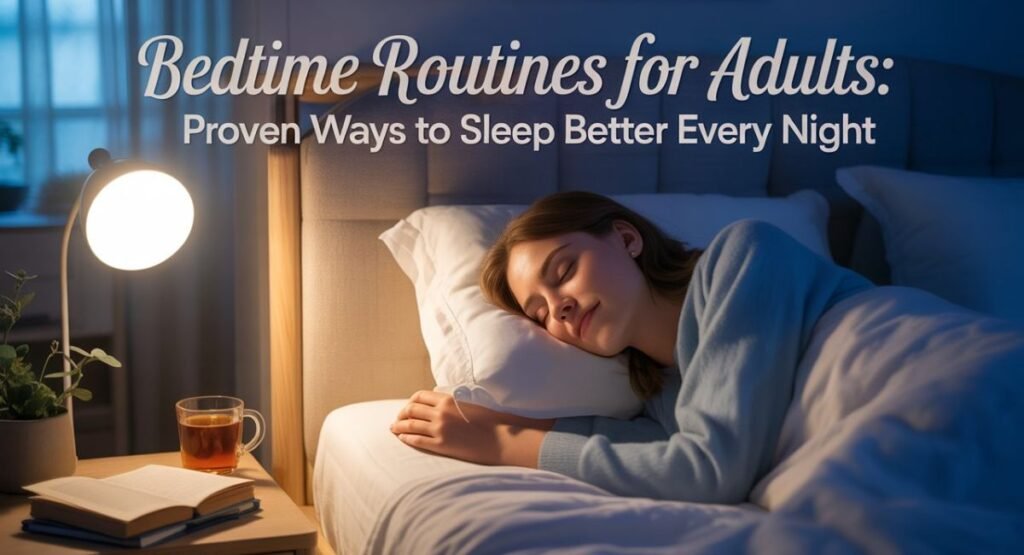
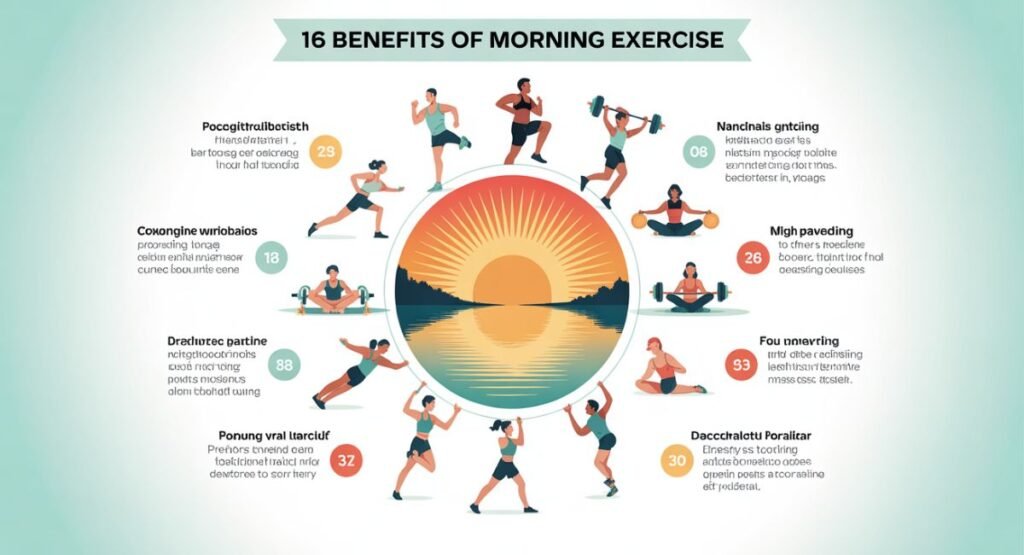


order high potency thc edibles for stronger effects
Nice blog.